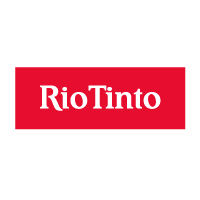Rio Sava Exploration welcomes the initiative of the Serbian Academy of Sciences and Arts (SANU), as a prominent scientific institution in the country, to organize the two-day scientific gathering “Jadar Project: What is known?” and to present to the general public different aspects of one of the most important greenfield investments in Serbia.

In this institution, where facts, science and evidence are valued, and with the participation of eminent domestic experts, a dialogue was held, based on correct, relevant and transparent information, pertaining to all stages of development of the Jadar project. Only with this kind of dialogue about Serbia’s greatest development potentials is it possible to mobilize the scientific potential of our country. Such a dialogue contributes to progress, with care to preserve the most important resources such as the environment.
While opening the gathering and welcoming the attendees, President of SANU academic Vladimir Kostić pointed out: “It’s not the first time for SANU to step forward in occasions like this one, and we will again do that in the only way which is inherent to SANU, i.e. with scientific arguments and scientifically-based questions. SANU does not deal in conjectural opinions. It will only search for truths based on science. We will offer this free space of communication to relevant collocutors from all sides, who will use the language of science, facts, even though we at SANU are aware that we do not share all opinions… As for SANU, nothing is being resolved here, but we will at least be a little smarter about understanding the whole problem. If we were to achieve that, I would consider this gathering a success.”
“Ignorance, fear and lack of information must not be obstacles to progress,” said Zorana Mihajlović, Minister of Mining and Energy, at the gathering.
Rio Sava Exploration is grateful that the Serbian Academy of Sciences and Arts allowed the Jadar Project to be discussed in an open atmosphere, and we are convinced that it will justify the high expectations in every sense, both economic and environmental.
At the gathering, over 60 questions had been asked by prominent experts, scientists, professors and researchers. A team of experts, primarily university professors gathered for the development of the Jadar project, in a well-argued and detailed manner, responded to the questions asked, and we believe that the facts and data brought up will contribute to stopping some of the most commonly repeated disinformation about the Jadar project.
Today we stated facts, in relation to which numerous misconceptions and disinformation are being generated, intentionally or by accident. Jadar will be a deep underground mine, and not an open pit on thousand or more hectares, as is often claimed. We will be using water from the alluvium of Drina river, not from Drina itself, and not from Jadar, in the ratio of 4/100.000, i.e. four hundred thousandth parts of the average flow of Drina. We will not have liquid tailings, and therefore no dam. There will be no smelting of the ore at 1200 degrees, nor treatment with sulphuric acid at 250 degrees. For the dissolution of the ore we will not be using 36,000 m3 of water a day, but a 6-7 times lower quantity of water than the aforementioned quantity, and 90% of that water will be already used and recycled – so not the clean water. The presence of arsenic, as shown by numerous tests, is approximately 100 times lower than the limit defined by the Rule Book on Categories, Testing and Classification of Waste. The processing does not generate hazardous vapours, primarily because of the low temperatures of the process and the technology itself (even without vapour filters, it would be below the legal limit). The content of toxic materials in the ore is low. Our facility has been classified as having a low SEVESO level, which means that it was recognized as a low accident level facility (while in the territory of the EU, there are over 12,000 facilities categorized and defined with this rule book). The energy used will be exclusively green. Release of purified and mineralized water will be at a level of 0.8% of the mining industry, and 0.1% of the total industry in Serbia.
Rio Sava Exploration proposes the next series of talks, with the same or broader group of attendants, to be organized once all materials and studies are completed. We hereby express our honest desire to continue purposeful dialogue with the academic and scientific communities, while appreciating, first and foremost, the openness and expertise of the participants of this scientific gathering.
For all questions about the Jadar project, contact us by email at [email protected]